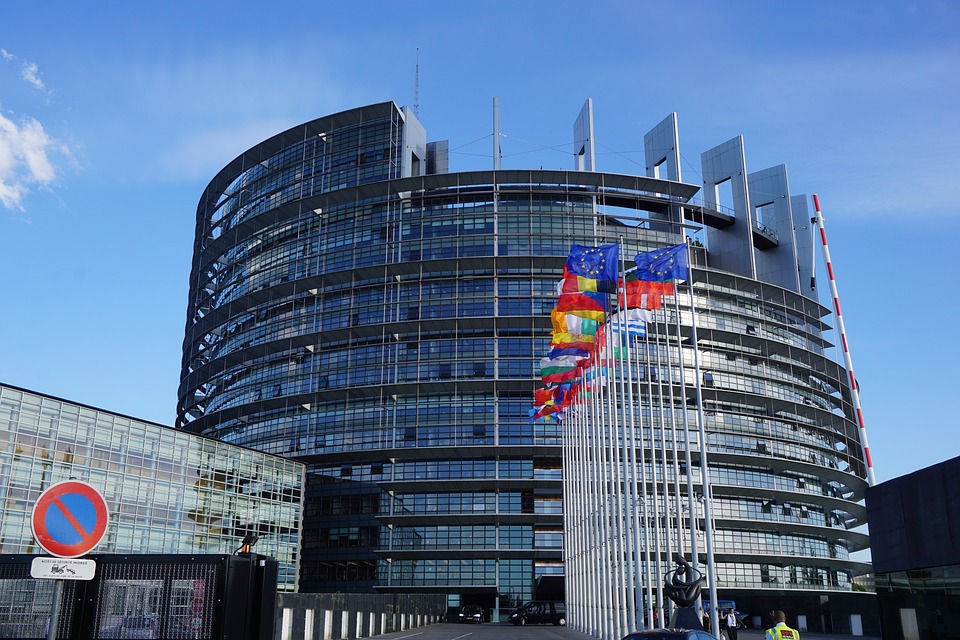Europe is in need of a ‘democratic transplant’. So says Sorbonne Professor, Antoine Vauchez, co-author of the Manifesto for the Democratization of Europe (2018), now translated into 9 languages. Signed by over 100 000 people, the Manifesto to democratize Europe was co-written with world renowned economist, Thomas Piketty and two other French academics. Spurred by a global pandemic, has the likelihood of such democratization increased, given a new climate in which mutualized debt is now a reality?
The manifesto was followed by a draft budget to democratize Europe. Fixed at 4% of GDP and composed of 4 key taxes (on high incomes, on wealth, carbon emissions and a harmonized corporate profits’ tax). With this money, the authors propose that four key social issues can be addressed: climate change, refugees, training and education and reimbursement for those eurozone countries hardest hit by the financial crisis. This manifesto grew out of the French elections of 2017, when Piketty was asked to provide the French socialist party with an outline for a European programme of reform.
‘Our ideas may not be perfect, but they do have the merit of existing.’ – Piketty
The manifesto to democratize Europe has since undergone several changes and revisions in light of feedback. But as Piketty points out, ‘Our ideas may not be perfect, but they do have the merit of existing. The public can access them and improve them.’ It was in a similar spirit that his co-author, Antoine Vauchez, spoke in Amsterdam last year. There is no doubt that many of the suggestions are bold, especially by the staid standards of the European Union. Perhaps most striking is the call for what is termed a new sovereign European Assembly.
National elections would be transformed into European elections.
This new European parliament would have substantial budgetary and legislative power. It would be made up largely of members of national parliaments (80%) with just 20% drawn from the existing European Parliament. This split is however open for further discussion. In order to democratize Europe, national elections would thus become European elections. It would also mean that national politicians would no longer be able to simply shift responsibility on to Brussels. They would be forced to explain to voters the projects and budgets they intended to defend in the European assembly.
‘ Britain will never truly leave the EU’ – Vauchez
The idea behind these proposals, is a reuniting of political and economic power at a European level. This would help ensure that Europe would be better equipped to deal with future crises of the kind experienced in 2007/8. It would also provide both the economic and political power to promote a more socially just and inclusive union. In such a Union the rise of populism, including Brexit, may well have been avoided, Vauchez agrees. The French academic told me however that he is not convinced that Britain will ever truly leave the EU. ‘There is simply too much shared history’ he maintains.
The underlying assumption behind this vision, is the importance of reconnecting ‘the economic governance of Europe with the representative project’ as Vauchez puts it. The French professor argued that the dominance of the economic governance of Europe, centering on the creation of the Euro itself, meant that the democratization of Europe was never a priority. The political and the social have continued to function almost exclusively at national level. Perhaps this is not so surprising, since the Eurozone started as an almost exclusively economic project. The creation of the European Union was preceded by that of the European Economic Community (ECC) in 1957.
‘The European economic elite have helped keep democratic control at bay.’ – Vauchez
However as Vauchez pointed out, ‘our starting point for this manifesto for democratization was that Europe has changed profoundly since the Maastricht Treaty and the creation of the single currency’. Piketty and his co-authors are concerned about the rise of a European economic elite. A group who have helped to create institutions that ‘keep democratic control at bay’ as Vauchez puts it. Irrespective of political orientation, few would disagree that the Eurozone has found itself ill-equipped to deal with a variety of significant crises in the past decade. These include the financial crisis, the refugee crisis and the Brexit crisis.
These French academics argue that the current institutional framework of the European Union make dealing effectively with such crises almost impossible. In particular because the veto right of each country prevents any common fiscal policy. It is difficult to disagree. But this tension between political and economic sovereignty sits at the heart of the European project. The guarantee that member states would retain their sovereignty with regards to tax, pension systems and political structures, formed the basis for a willingness on the part of many, to proceed.
Northern member states reluctant to bail out their southern counterparts.
The so called North/South divide is evidence of this. Many Northern nations feel strongly that they will find themselves having to bail out their less prosperous southern counterparts. This is a highly complex issue that is further complicated by the inclusion of various East European member states. But it does not alter the fundamental question: has the European Union reached a point where further progress cannot be made unless member states commit to greater democratization? It is tempting of course to continue tinkering with the current structure as various members of last night’s panel suggested. ‘Looking for silver bullets’, Vauchez calls it. But history suggests that fortune tends to favour the brave.


2 thoughts on “A democratic transplant for Europe?”